Have you been working diligently on the SEO of your eCommerce site only to find that you’re still losing traffic? The reason for that traffic drop — as counterintuitive as it seems — may be that you are over-optimizing for SEO.
Over-optimization happens when your SEO tactics come across as “spammy” to Google. Examples include having too many internal links per page and keyword stuffing (the most common culprit behind over-optimizing your site).
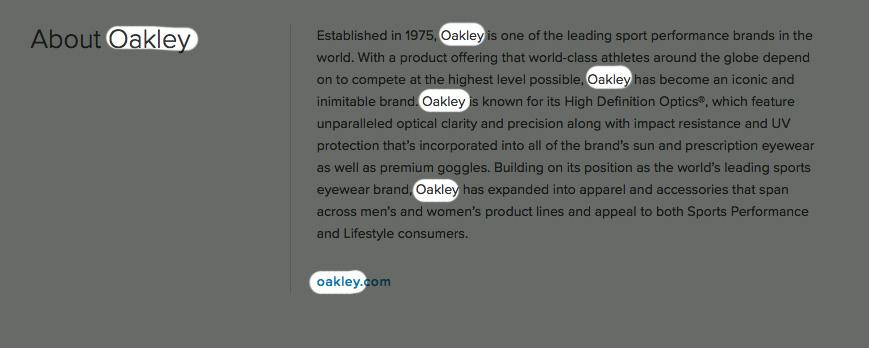
Not so long ago, sites could positively influence their search rankings by adding loads of relevant keywords to each page. Now, Google’s search ranking algorithms are more sensitive to this tactic and can penalize sites for attempting to “hack” the system.
That was the case with an established eCommerce business that came to us because they were steadily losing organic traffic and falling lower in search queries.

While investigating their site, we found that a keyword or phrase might be used a dozen times or more on the same product page. In years past, this “keyword blasting” tactic had helped their search ranking. Not anymore.
Especially if your online store has been around for a while, content that once helped you rank could now be having the opposite effect.
Note: We can help you improve your search rankings and organic traffic. Contact us here.
Could your site be over-optimized?
This article will guide you through the step-by-step process to investigate whether your site is over-optimized or under-optimized for SEO. We’ll show you which tools to use to see if you’re being penalized by Google algorithm updates and whether you’re using more or fewer keywords per page than other pages ranking higher for the same search terms.
1. Compare Your Site Traffic to Algorithm Updates
Panguin is an easy-to-use SEO tool that shows you whether you’ve been impacted by Google’s algorithm updates. It links to your Google Analytics account and overlays a chart of updates on top of your organic traffic. Use it to see whether updates are harming or helping your traffic.
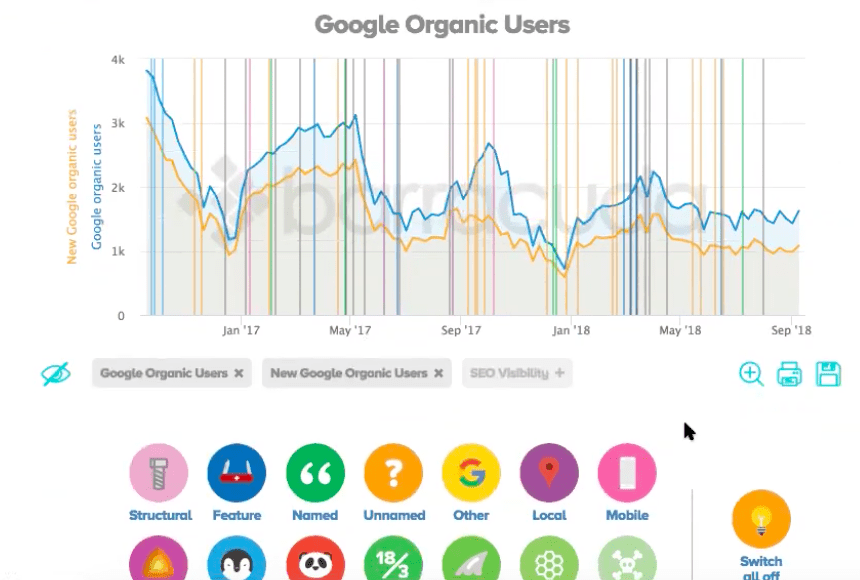
You can also use Panguin to narrow down which updates are impacting your organic search traffic. For instance, if you saw a steep decline after Google’s mobile update, you’ll want to dive deeper and understand things like whether your site is mobile friendly and if it has parity with the desktop site.
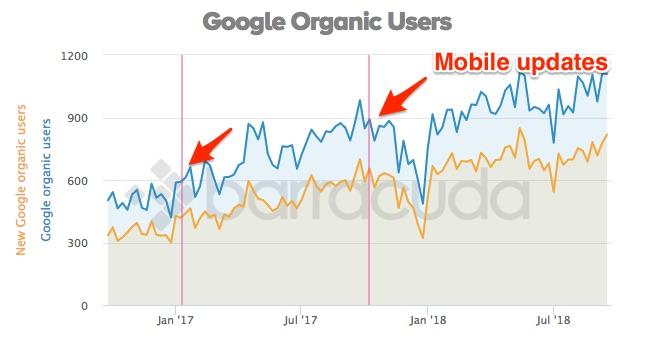
The benefit here is to have a better understanding of whether it’s the updates that are causing changes to your traffic, or something else. If the updates aren’t the culprit, you might need to investigate other reasons, like technical problems with the site.
Panguin can only help you correlate whether algorithm updates are harming your organic traffic, not why. So at this point, it could still be a number of issues. You could be over-optimized, under-optimized, have a questionable backlink profile, have a non-mobile friendly site, etc. It could be a combination of multiple factors.
By the way… if your site is losing organic traffic and it’s not tied to the updates, it could be due to a recent site revamp or migration. When sites go through major changes, such as a switch to HTTPS or altered site architecture, this could cause Google to reevaluate your site, “realize” your site is over-optimized after all (when they hadn’t before), and demote your content. We call this “awakening the beast.”
2. Compare Your Keywords to Your Competitors
If you’re losing traffic and can tie the problem to either the algorithm updates or a major site redesign, the next step is to compare the content to other sites that rank well for your target keywords. This can tell you whether you’re under- or over-optimized.
We’re assuming that the pages you’re investigating are already targeting the correct keywords. What we want to know is whether your pages contain too many instances of those keywords per page.
There are a number of tools that help you find out. One of the tools we use regularly is Ryte Content Success.
This tool helps you compare your content to Top Ten ranking content easily and quickly. It compares pages using TF*IDF, an algorithm that assesses the importance of a word on a page.
When you’re consistently using more instances of keywords than the average for sites ranking in the Top 10, it’s a good indication that Google will read your site as over-optimized.
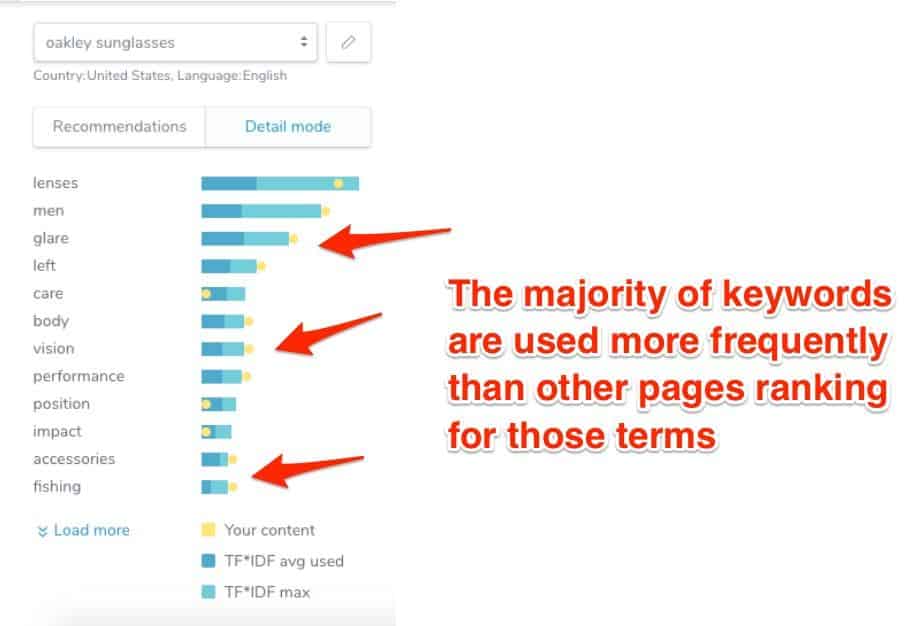
Ryte also allows users to edit and compare your content on the fly as you integrate suggested keywords and phrases into your content.
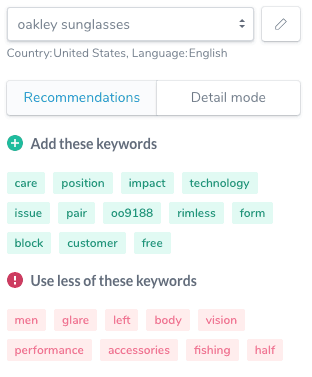
There’s also a new tool called SurferSEO we’ve been investigating that offers similar information. It is currently free and in beta.
SurferSEO allows you to compare information (such as the number of exact and partial keywords used, as well as the number of words on a page, etc.) for pages ranking for a specific keyword.
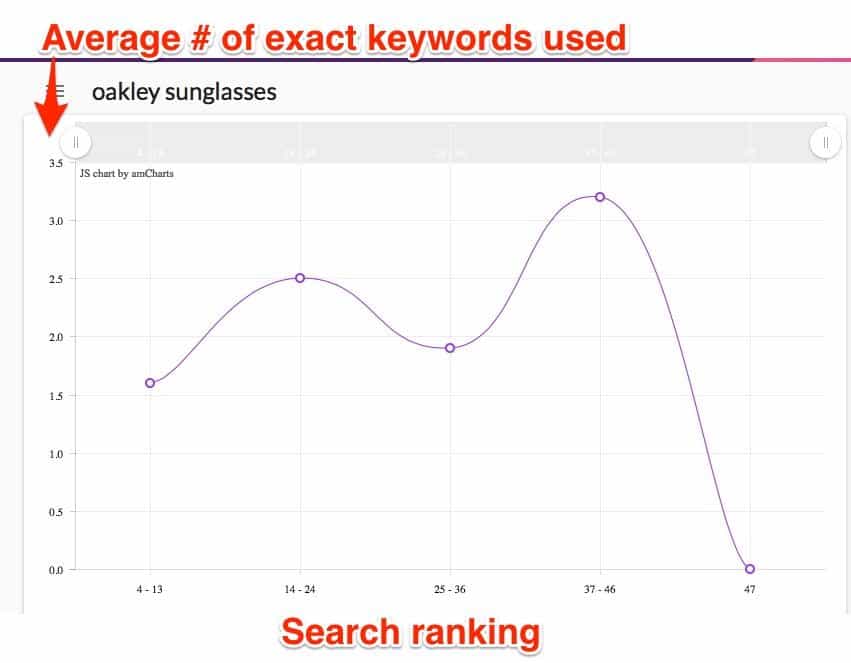
You can input a specific URL and Surfer will warn you when your keyword usage on that page is above or below the average for other ranking pages.

3. Don’t Expect Immediate SEO Results
When you’re over-optimized, the plan is simple: reduce the number and usage of keywords on each page you’d like to rank for and increase the usage of synonyms and other keywords that are semantically relevant to the main topic or target keywords. But this process takes time.
It can also take time for Google to find and reward these positive changes.
A complete SEO strategy (a necessity for any eCommerce site) is much more complicated and time-consuming than just fixing over-optimization.
John Mueller, a Senior Webmaster Trends Analyst for Google, explained that sites can expect “multiple months, maybe half a year, maybe longer” for even major SEO improvements to be reflected in search results.
Google Algorithm updates and changes to SEO best practices occur frequently. To rank well requires consistent site monitoring and testing.
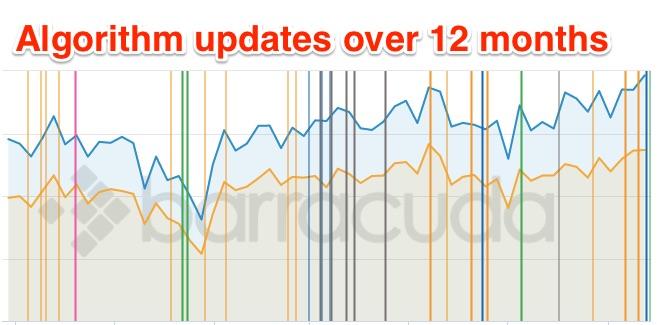
What to Expect from Your Agency
While you can’t expect fast SEO results, if you’re working with an agency, you should expect consistent updates. Your agency should keep you informed about major algorithm updates, industry news, and best practices — a lot more than just sending you quarterly reports. We reach out to our clients at least monthly with reports, analysis, news, and suggestions.
If you’re not getting these basic updates, it’s worth asking if your agency is doing enough to protect and improve your organic traffic.
Note: We can put together a complete SEO plan tailored to your eCommerce site. Contact us here.










0 Comments